For anyone learning how to fly, soloing an aircraft is an unforgettable milestone. For most students, it’s also a critical gate in their training — a box that must be ticked before they can proceed to instruction in cross-country flight or advanced maneuvers.

Should it be?
Most students master basic aircraft control long before they’re proficient in emergency procedures. That means a student who solos with low hours is unlikely to be prepared for an in-flight emergency. But delaying a student’s progress out of an abundance of caution can be rough on that student’s pocketbook and morale — and even very talented students can have their training stalled by weather that’s not quite good enough for solo flight.
Epic Helicopters, of Fort Worth, Texas, has taken a different approach to soloing its students, sending them up for their first solos towards the end of their private pilot training, rather than the beginning. “We asked ourselves, what makes sense as a learning process to make it easier for the student?” explained Michael Hume, Epic’s flight academy manager. Not only does moving the solo milestone help students avoid unnecessary delays, by the time they do solo, “now they’re more knowledgeable, safe pilots,” Hume said.
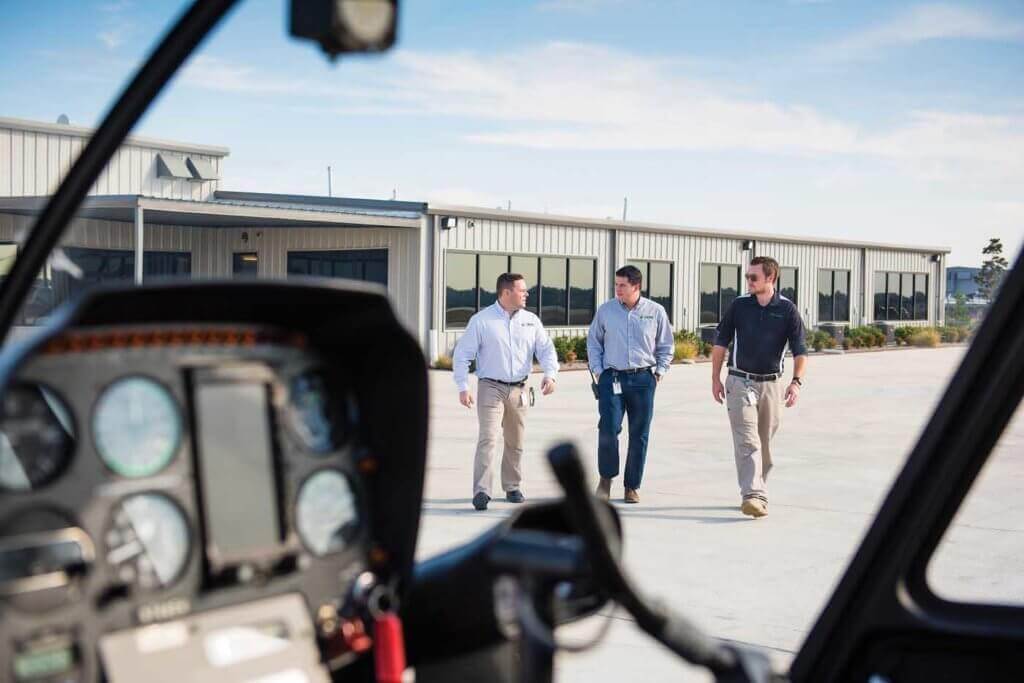
This is just one of the ways in which Epic is rethinking helicopter flight training as it works to create skilled professional pilots who are also satisfied customers. “We have put together a program that we think is going to train students more efficiently,” said president and director of operations Brian Dunaway, adding, “When [employers] see Epic on the resume, we want them to be put at the front of the line.”
The company is forward-thinking in other aspects of its operations, too, embracing social media and partnerships with outside companies like Uber. With a brand-new facility in “one of the greatest aviation markets in the U.S.” — home to manufacturers including Bell Helicopter and Airbus Helicopters Inc., among others — Epic is “definitely an exciting place to be right now,” said Dunaway.
Built from the ground up
Dunaway, now 37, got an early start in aviation. He made his own first solo flight on his 16th birthday, and earned his commercial pilot certificate at age 18. Although he started his flight training in airplanes, he quickly fell in love with helicopters, which became his focus.
Rather than pursue a career as a pilot, however, Dunaway opted to study business at Elon University in North Carolina. From there, he went into marketing, taking a position with a small advertising firm in Dallas.
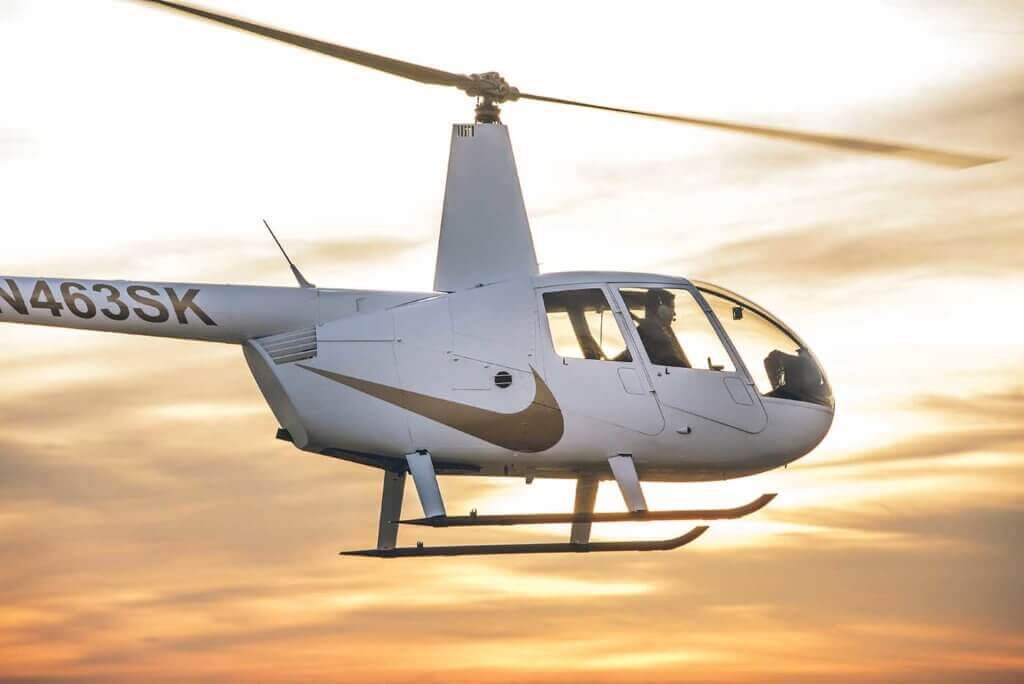
But aviation was never far from his mind — and, as someone who comes from a family of entrepreneurs, neither was being his own boss. Dunaway began writing his business plan for Epic Helicopters while he was still working in marketing and advertising. He also started training to become a certificated flight instructor (CFI), using the opportunity to tour a number of different flight schools and gain perspective on the business.
Dunaway launched Epic Helicopters with one Robinson R22 in 2006. Although he initially envisioned Epic as an aerial photography company, he discovered there was significant demand for flight training, too. Today, training accounts for 50 to 60 percent of the company’s business, with the rest split between charter operations and tour flights.
From the beginning, Dunaway believed he could offer the market something better than the status quo. As the company has grown, he has moved steadily toward realizing that vision. Several years ago, he hired well-known flight instructor Randy Rowles — the 2013 recipient of Helicopter Association International’s W.A. (Dub) Blessing Certified Flight Instructor of the Year Award — as Epic’s director of training. Rowles, in turn, alerted Hume to a CFI job opening at Epic; the two had met when Hume was still a student at Embry-Riddle Aeronautical University in Arizona.
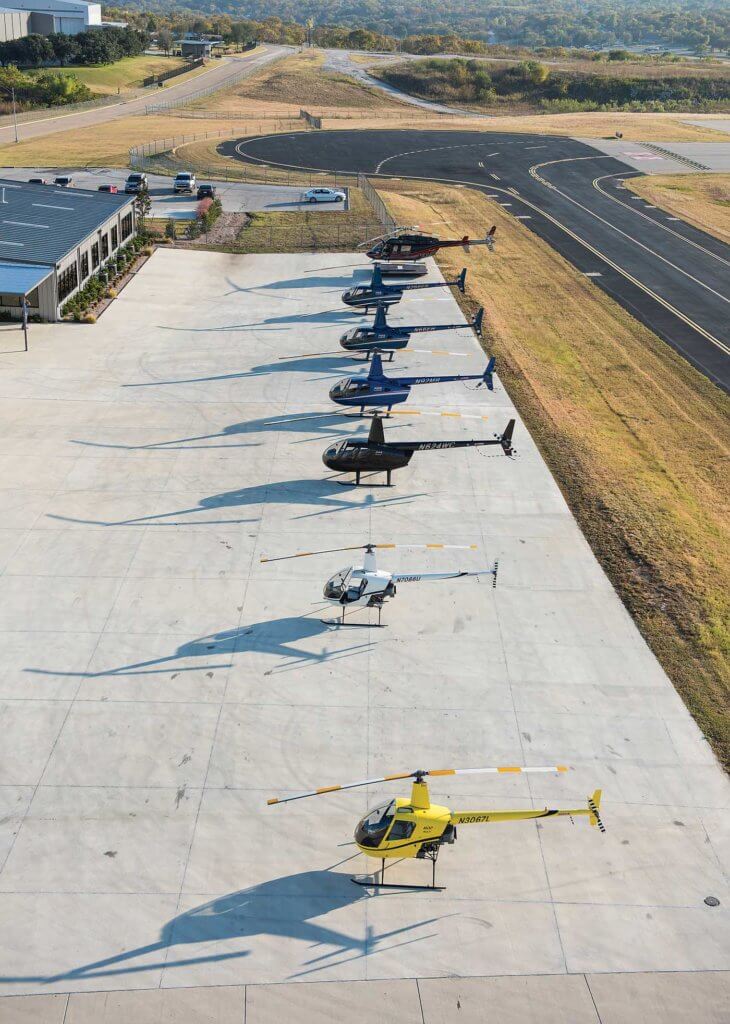
Two-and-a-half years ago, with the flight school growing, Rowles and Hume sat down to rethink Epic’s Federal Aviation Administration (FAA)-approved part 141 training program, which had originally been approved in 2009 (the same year Epic obtained approval to train non-U.S. citizens). According to Hume, they realized that they could either “create courses to fill the gaps, or create something from the ground up.” They chose the latter option, in the process questioning some conventional wisdom about flight training — such as the appropriate timing of a student pilot’s first solo. They also revised Epic’s instrument training program to place more emphasis on cross-country flight and operating within the instrument flight rules (IFR) system.
Their most extensive changes, however, were to Epic’s commercial pilot training program. Not only did they want to address the weaknesses that Rowles had observed in his role as an FAA designated pilot examiner, they wanted to better prepare students for the reality of commercial helicopter operations. As Hume noted, “A lot of stuff that people do in the commercial world isn’t taught in flight schools.”
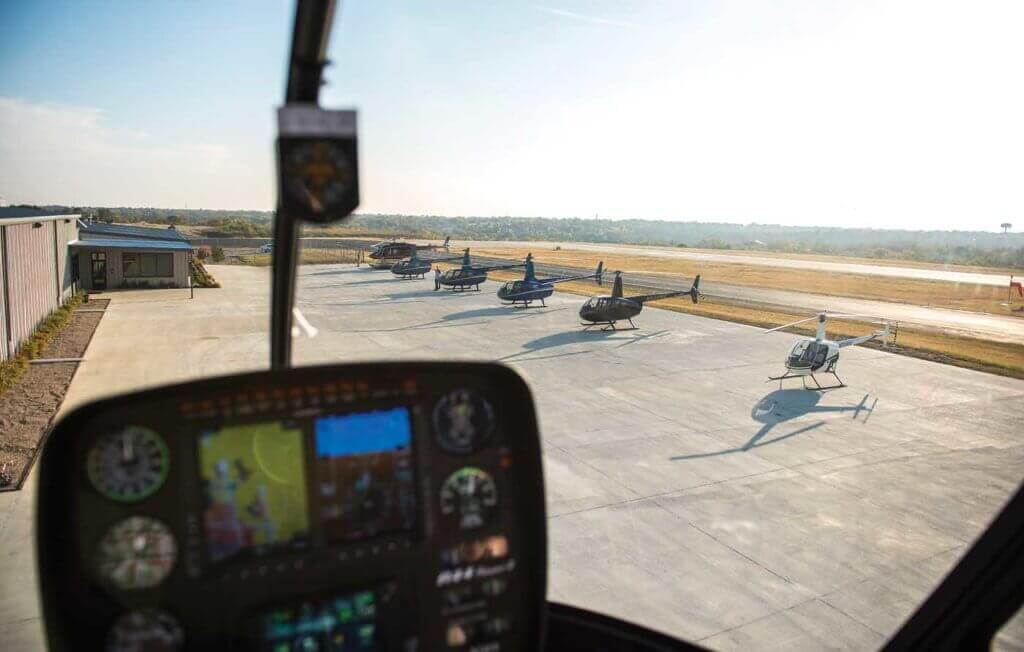
The result was a series of five- to 10-hour “elective courses” that commercial students can use to build hours towards the FAA’s minimum flight time requirements — rather than simply boring holes in the sky, as many commercial students do. These elective training blocks provide students with more focused instruction in subject areas such as high-density airspace operations (taking advantage of the Dallas-Fort Worth area’s busy local airspace), flying in the wire environment, night vision goggle (NVG) use, and external load operations, all relevant to the real world of commercial helicopter flight.
According to Hume, Epic helps students tailor their training towards specific aspirational goals. For example, students who hope to one day become helicopter emergency medical services (HEMS) pilots might combine courses in high-density airspace, off-airport landings, and crew resource management. These 150-hour pilots won’t be ready to fly HEMS anytime soon, but they will have a strong foundation from which to further develop skills that will benefit them in their later careers.
“We’re looking for pilots who come out of our academy to be safety-minded, competent, and confident,” said Hume. “They’re confident in their abilities, and they’re confident in what they can and cannot do.”

“I really love what we’re doing here,” said Rowles, explaining that Epic’s approach to flight training is not so much recreating the wheel as “redesigning the flow of the spokes.” By involving the FAA in the process early on, he said, Epic was able to shorten the time required for the agency’s approval, which came in February of 2017. Since then, Rowles and Hume have focused on standardizing courseware and training Epic’s six current instructors to administer it in a standard way, ensuring that all students reap the benefits of the new curriculum.
For the same reason, Epic has invested extra effort in its CFI training program. “We have an excellent CFI program because it is founded on closely mentoring candidates, putting them in actual teaching exercises, and using group collaboration and learning,” said Dunaway. “Our CFI flight training program is organized, methodical, and thoughtful. We take the CFI program very seriously and work hard to develop these candidates.”
Ready for the future
Dunaway said he couldn’t be happier with Epic’s new part 141 training program and how it came to fruition: “I’ve probably not seen the cards fall into place as smoothly and sequentially as they did with this project.” Moreover, he said, “I feel really confident about who we have in place in key positions.”

As Epic moves into its second decade of operations, one other thing bodes well for its success — its new 30,000-square-foot facility on the west side of Fort Worth Meacham International Airport, of which 14,000 square feet are dedicated to classrooms and training. The facility was designed by Dunaway and his team to meet Epic’s specific needs, and opened in 2016. Not only does the stylish modern building project a professional image to customers, it is spacious enough to accommodate future growth. Said Dunaway, “Without this facility, we couldn’t do what we want to do.”
And there’s plenty that Dunaway and his team want to do. On the flight-training side, Epic — which currently operates a fleet of two Robinson R66, four R44, and two R22 helicopters, plus a newly added Bell 407 in association with Helicopter Institute — plans to launch a fixed-wing training program in January 2018. The company is also looking to upgrade its existing FlyIt flight training device. “We’re excited about the possibilities of a better, higher-fidelity simulator,” said Dunaway.
Meanwhile, Rowles will be offering initial and recurrent training at the facility in the Bell 407, including NVG training. The addition of the more capable 407 will also allow Epic to take on local external load work, as the company was recently granted FAA approval for part 133 rotorcraft external load operations. And, at the end of November, the company had its training programs approved by the U.S. Department of Veterans Affairs (VA).
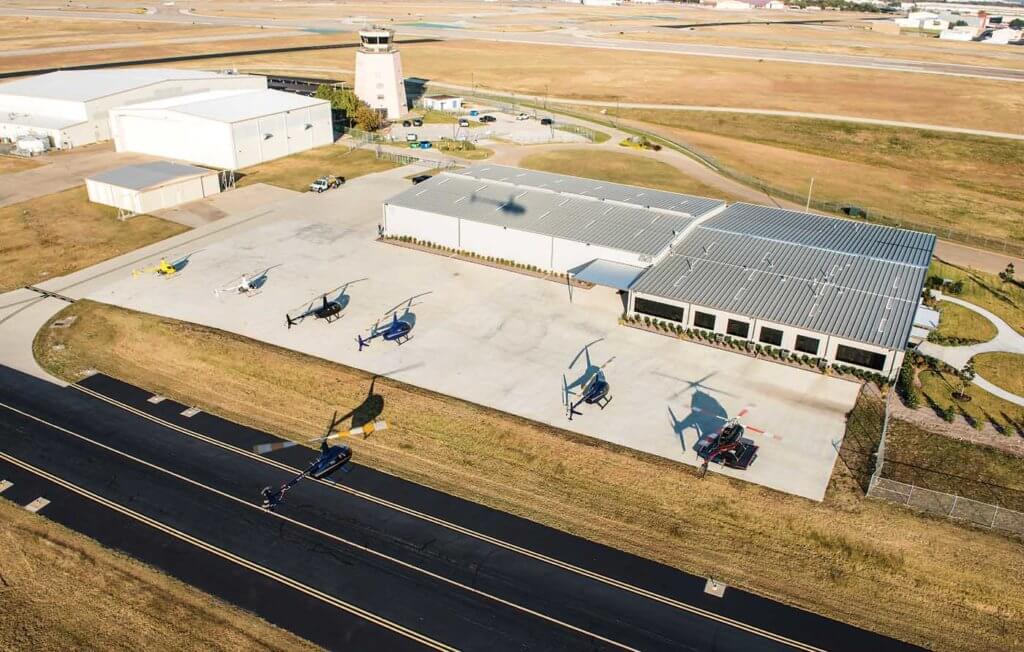
Epic will also be taking advantage of its new space to host FAA Safety Team meetings and other outreach efforts. in the summer of 2017, for example, the company put on a Helicopter Adventure Camp for kids aged 12 to 18, featuring a simulator lesson, flight in a helicopter, and visit to the adjacent Fort Worth Meacham control tower.
“I’m so excited about the prospect of some of these things,” said Dunaway, adding that the company re-launched its website in 2017 to better reflect its current identity and offerings.
As for the company’s long-term future, who knows what it might bring? As a regular partner with Uber on “UberChopper” transport for special events, Epic is closely following the ride-share company’s Elevate program, which aims to bring electric vertical takeoff and landing (eVTOL) aircraft to Dallas-Fort Worth skies in the next five years. Although many people in the helicopter industry are skeptical of Uber’s ambitious timeline, Dunaway is approaching the concept with an open mind — as he has with so many other aspects of his business.
“I really think it’s going to be: get on board or get left behind,” he said.






Flying an airplane is one thing kind a bicycle like, but, flying a rotorcraft is comparable to unicycling … way totally different and this to every aspects.
Keith Ostertag is an absolute CANADIAN LEGEND, in the helicopter industry and a HERO of mine. K O or kilo oscar was obviously 60-70 years ahead of time, as I remember 20 years ago him saying we must give operational training and all emergencies will be completed before you solo. So thanks to companies like this and legends like K O the helicopter industry can improve if governments listen to the people doing the job, not just hear the people behind desks.